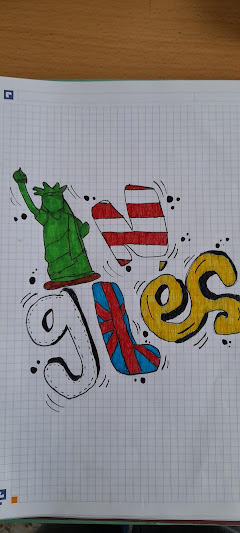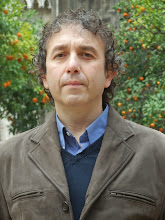AFFIXATION
PREFIXES:
Prefixes are added to the BEGINNING of words to
form new words. They normally change the meaning of the word but not the type
of word.
1)
NEGATIVE:
·
UN unable / unbelievable / unfair / unsuccessful
·
NON non-smoker / non-fiction / nonconformist
/ non-essential
·
IN incorrect
/ insane / incomplete / inevitable
·
IM (+ m/p) immature
/ immigration / impolite / impossible
·
IL (+ l) illegal / illicit / illogical / illusion
·
IR (+ r) irrational / irregular / irrelevant
/ irresistible
·
DIS disconnect
/ dishonest / dislike / dissatisfied
2)
OTHERS:
·
INTER interactive
/ intercontinental / international / interweave
·
RE react / re-use / rebuild / recycle
·
CYBER cyberspace
/ cybercafé / cyberpunk / cybernetic
·
ANTI anticlimax / anti-nuclear / anti-racist
/ antisocial
·
SUPER supermarket
/ supernatural / supersonic / superstar
·
OVER overconfident / overeat / overact /
overpopulated
·
UNDER undercook
/ undercharge / underestimate / understatement
·
EXTRA extracurricular
/ extraordinary / extraterrestrial
·
MIS misbehave
/ misconception / misunderstand
·
PRE pre-Christmas
/ pre-Raphaelite / pre-war
·
POST postgraduate / postmodern / post-war
SUFFIXES:
We add suffixes to the END of words to make new
words.. They usually change the type of the word, for example nation (noun), national (adjective), nationally
(adverb).
1) NOUNS:
A) MADE FROM NOUNS
·
IST artist / pianist / racist / scientist
·
SHIP citizenship / membership /
friendship / championship
·
DOM freedom / kingdom / stardom / wisdom
·
FUL spoonful / mouthful / houseful /
eyeful
B) MADE FROM VERBS
·
A/E NT assistant
/ immigrant / student / absorbent
·
ATION examination
/ imagination / organization / improvisation
·
ER / OR driver
/ teacher / actor / conductor
·
EE employee
/ trainee / addressee / attendee
·
ION action / connection / exhibition /
confrontation
·
MENT achievement /
amusement / development / improvement
·
ISM capitalism / socialism / criticism /
terrorism
·
ING dancing
/ handwriting / building / beginning
C) MADE FROM ADJECTIVES
·
E/I TY anxiety
/ safety / activity / reality
·
NESS illness / loneliness / weakness /
emptiness
·
ENCE confidence /
difference / intelligence / violence
·
TH warmth
/ strength / truth / youth
2)
ADJECTIVES:
A) MADE FROM NOUNS
·
FUL careful / powerful / useful / beautiful
·
LESS careless
/ powerless / useless / colourless
·
EN wooden
/ golden / woollen / silken
·
ED annoyed / delighted / coloured /
hooded
·
ING annoying / delighting / boring /
charming
·
AL accidental
/ environmental / musical /
national
·
Y cloudy / dirty / lucky / wealthy
B) MADE FROM VERBS
·
IVE active / attractive / creative / effective
·
ABLE acceptable / believable / questionable /
desirable
·
IBLE accessible
/ convertible / digestible / edible
·
ED balanced
/ shaped / disappointed / stressed
3)
ADVERBS:
A) MADE FROM NOUNS
·
LY weekly / daily / monthly / noisily
B) MADE FROM ADJECTIVES
·
LY carefully /powerfully / happily / quickly


